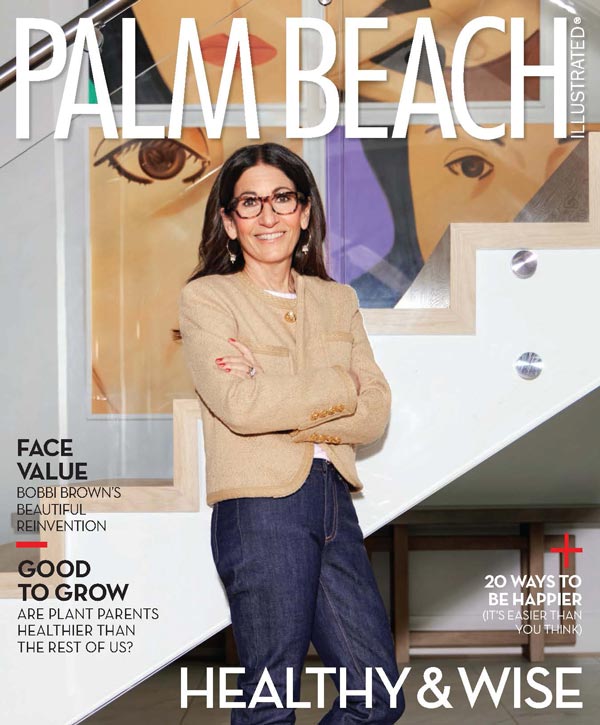
PBI is pleased to present a series of Q&As with Black leaders making a difference in the community. To read more, click here.
Before even celebrating his first anniversary as Mayor of the City of West Palm Beach, Keith James was faced with a crisis of epic proportions: the coronavirus pandemic. James immediately set about prioritizing his response to the pandemic. This involved closely monitoring the spread of the disease and making tough calls to ensure public safety, as well as establishing a COVID-19 Response Unit and the WPB Together Fund to support recovery efforts.
The Kansas-born politician is a lawyer by trade, having graduated from Harvard Law School and practiced in the Northeast before relocating to West Palm Beach 30 years ago. Prior to becoming Mayor of the City of West Palm Beach in April 2019, he served as District 4 City Commissioner and as president of the Palm Beach County League of Cities, an organization dedicated to advancing the interests of Palm Beach County’s 39 municipalities.
Here, James opens up about the challenges of his job, the role of a leader, and the importance of mentorship.
PBI: What inspired you to pursue a career in public service?
James: When I first started practicing law in Philadelphia, a senior partner at my law firm told me it was very important to give back to your community. I never forgot that lesson. I’ve always had a desire to give back to my community through my time and talents. I saw public service as an extension of that philosophy; I felt that I had something to offer to make my community a better pace in which to live. It’s biblical: “To whom much is given, much is required.” That is a philosophy that I have always tried to live by.
As a young professional, what role model did you look up to and what did you find most inspiring about him/her?
Early in my l career at a Philadelphia law firm, I admired a senior partner who was both successful at that law firm (having achieved partnership) and who was also very involved in the local community. I was also quite impressed by the fact that he was one of only a handful of African American partners at any of the large Philadelphia law firms. The more I learned about his community activities, the more I knew his was a professional life I wanted to emulate.
Can you think of a time in your career when you faced what felt like an insurmountable obstacle? What was it and how did you overcome it?
In 2005, I thought I could advance professionally and economically by starting my own law firm. Entering the world of entrepreneurship is always a challenge. Theory is one thing; reality is another. So, I had a bit of panic on the first day that I opened my office. I overcame this obstacle by maintaining belief in myself and taking it one day at a time. Every thousand-mile journey starts with the first step, and I just kept putting one foot in front of the other.
What’s been your proudest achievement thus far as mayor?
Leading the City of West Palm Beach during this very difficult, uncertain, unprecedented time is my proudest achievement. While we are not yet through this crisis, I hope my leadership to this point has let the public know that there is a steady hand at the wheel.
What have you found to be the most difficult aspect of your role as mayor?
The most difficult aspect of being mayor is balancing competing concerns. Generally, when problems hit my desk, there are strong reasons for support for both sides of an issue. Balancing those concerns and making the right decision can be difficult. No matter the decision, there will be people who disagree with you. You must always stay true to your North Star.
You have a lot of experience helping small and medium-sized businesses succeed. During this historic moment in time, what advice would you give business owners when it comes to embracing diversity within their own business models?
I’ve always been a believer that diversity is a strength—diversity of ideas, perspectives, and backgrounds. The more diversity you have, the better decisions you are able to make, because that’s just more data helping to inform your decisions. I would tell small businesses to look outside of your comfort zone, recognize that diversity is an asset, and be intentional about broadening your appeal across gender, racial, and ethnic lines. By doing so, you will increase your possibility of succeeding in selling your products or services.
What resources do you think are most helpful to young people of color in their quests to succeed in their careers?
Find a role model who is successful in your career or professional path; invite them to a lunch or coffee, and just pick their brain. Generally, there’s never a need to reinvent the wheel. There are few professional opportunities that require you to start from scratch. Somebody has done it before. If you can identify someone who has been successful and spend some time learning what books they’ve read, what motivates them, and what their habits are, you can pick up a little morsel of wisdom that will help you. As you are looking for that role model, find someone who is as comfortable with you as you are with them. Hopefully, they will open up and share insights and advice.
What has been your biggest takeaway from the events of this year thus far?
The biggest takeaway is to expect the unexpected and remain flexible in your approach to problems. You need to surround yourself with a good team and focus on the priorities. During a time of great uncertainty, prioritize. It is important to “stabilize the patient first” to use a medical metaphor, then move on to actual treatment. Do what is necessary to get through to the next hour, then the next day, and then the next week.
What is your guiding philosophy as a leader? What tenets do you consider or try to uphold within your role as a leader?
I try to govern from a platform of integrity, preparedness, and empathy. I also believe in staying true to your North Star. We all have them. You can’t pick one up in a book or a library. Your North Star is tied into who you are as an individual and your reasons for undertaking a leadership role. I’m in it to help the people, community, and City do better. Always strive to not be the smartest person in the room and, instead, surround yourself with people who are smarter than you and share your ethics and sense of professionalism.
What’s one book you feel everyone should read once in their life and why do you think it’s a worthy read?
The book Roots: The Saga of an American Family by Alex Haley captures the unique history of unique people. Reading about folks who involuntarily came over on boats and what they had to do to not only survive but make a better life for their children is impactful. The values of determination, hard work, and sacrifice ring true even today as we struggle to understand our nation’s true history. The book is very telling and offers another side of the American story.
What tips or words of wisdom would you share with young professionals looking to follow a similar career path as you?
Preparation, performance, and perfection are all key. So too is giving to others. At the end of the day, your performance is the measure of you as a professional. But it’s what you are doing for others and how you can invest in others’ lives that will give you true fulfillment.









Facebook Comments